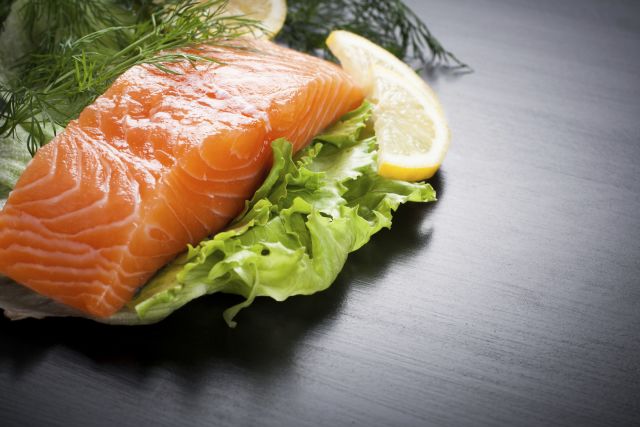Updated on February 7, 2023.
You may know that adding fish to your diet is good for your heart. But research suggests that eating fatty fish could also lessen the painful symptoms of rheumatoid arthritis (RA), and may even help protect you from developing the condition.
Fish, omega-3s, and inflammation
The benefits seem to be due, at least in part, to the omega-3 fatty acids found in some fish. Experts have linked them to reduced inflammation, which is at the heart of rheumatoid arthritis. RA occurs when the immune system attacks joint tissues, leading to chronic inflammation, pain, heat, swelling, and stiffness.
For people who already have RA, omega-3 fatty acids can be helpful in treating the disease’s symptoms. They may even help prevent people with RA from developing other conditions, like cardiovascular disorders or insulin resistance.
Can omega-3s prevent RA?
Some research suggests that omega-3s don’t just treat existing RA, they may help prevent you from developing the condition in the first place. For one long-term study published in 2014 in Annals of the Rheumatic Diseases, Swedish researchers tracked around 32,000 women over eight years. They found that women who ate fish one or more times per week had a 29 percent lower risk of developing RA than those who ate fish less than once per week.
More recently, both a 2019 review in Clinical Therapeutics and a 2022 review in Internal Medicine Journal examined risks for developing RA. The evidence in both suggested that eating diets including plenty of fish/omega-3 fatty acids—along with making some other lifestyle changes—were linked to lower chances of developing RA.
Even so, the jury’s still out. A large 2018 study published in the Journal of the Academy of Nutrition and Dietetics that looked at more than 80,000 older women found that consuming omega-3s didn’t seem to reduce RA risk at all.
The case for fish
Still, since omega-3s don’t cause any serious side effects and offer many potential benefits, it’s worth making the effort to include them in your diet.
So how can you get omega-3 fatty acids from foods? First, it’s important to know that they’re made up of three main types:
- Alpha-linolenic acid (ALA)
- Docosahexaenoic acid (DHA)
- Eicosapentaenoic acid (EPA)
Your body needs all three types of omega-3s to help manage your heart, blood vessels, lungs, immune system, and endocrine system (the glands that make hormones). The federal government recommends that men get 1.6 grams and women get 1.1 grams of ALA each day, but they haven’t yet determined the recommended amounts of DHA and EPA. Pregnant people should get 1.4 grams of ALA daily, while those who are lactating should have 1.3 grams.
Different foods have different types of omega-3s. Plant-based foods like flaxseed oil, chia seeds, and walnuts offer the most ALA. To get the most DHA and EPA you’ll want to eat fish—especially salmon, herring, sardines, and mackerel. Some fortified foods such as milk and cereal will also have omega-3s added to their ingredients.
In that long-term Swedish study, women whose diets averaged at least 0.21 grams of omega-3s per day—that’s equivalent to just one serving a week of these fatty fish, or four servings of leaner fish, like cod—had a 52 percent lower risk of RA. For comparison, three ounces of cooked salmon (about the size of a reading glasses case) contains between 1.6 and 1.8 grams of omega-3s.
Ways to get fish oil
Not every cooking method will keep those omega-3s in good shape. It varies based on the type of fish, the type of cooking oil used, and the time it takes to get from the sea to your plate. That said, many experts agree that frying fish is more likely to harm the omega-3 fatty acids, whereas steaming or grilling tends to be more protective.
Fish oil supplements can provide omega-3s as well. But although these supplements may lower the need for pain relief medication in people with RA, it unknown if they lower the risk of developing the condition.
The takeaway? There are no proven ways to prevent RA. But since it has been shown to reduce joint symptoms, and fish is good for you in so many ways, adding a grilled salmon dinner once a week is a great place to start. If you are considering supplements, talk to a healthcare provider to discuss dosing and possible medication interactions.






